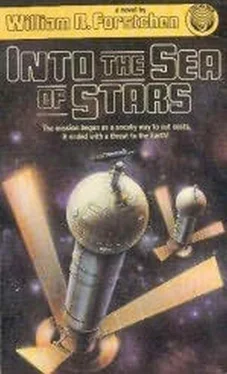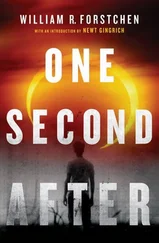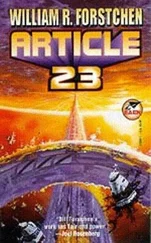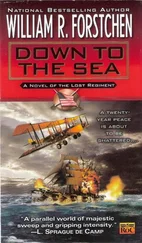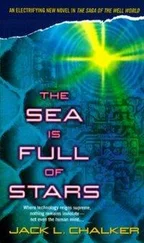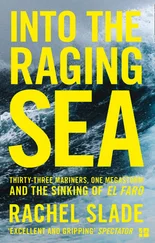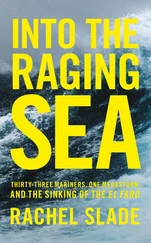William Forstchen - Into the Sea of Stars
Здесь есть возможность читать онлайн «William Forstchen - Into the Sea of Stars» весь текст электронной книги совершенно бесплатно (целиком полную версию без сокращений). В некоторых случаях можно слушать аудио, скачать через торрент в формате fb2 и присутствует краткое содержание. Год выпуска: 2012, Жанр: Фантастика и фэнтези, на английском языке. Описание произведения, (предисловие) а так же отзывы посетителей доступны на портале библиотеки ЛибКат.
- Название:Into the Sea of Stars
- Автор:
- Жанр:
- Год:2012
- ISBN:нет данных
- Рейтинг книги:5 / 5. Голосов: 1
-
Избранное:Добавить в избранное
- Отзывы:
-
Ваша оценка:
- 100
- 1
- 2
- 3
- 4
- 5
Into the Sea of Stars: краткое содержание, описание и аннотация
Предлагаем к чтению аннотацию, описание, краткое содержание или предисловие (зависит от того, что написал сам автор книги «Into the Sea of Stars»). Если вы не нашли необходимую информацию о книге — напишите в комментариях, мы постараемся отыскать её.
Into the Sea of Stars — читать онлайн бесплатно полную книгу (весь текст) целиком
Ниже представлен текст книги, разбитый по страницам. Система сохранения места последней прочитанной страницы, позволяет с удобством читать онлайн бесплатно книгу «Into the Sea of Stars», без необходимости каждый раз заново искать на чём Вы остановились. Поставьте закладку, и сможете в любой момент перейти на страницу, на которой закончили чтение.
Интервал:
Закладка:
"Why we've been assigned is the Chancellor's decision and not mine. But I can see where, if anything, he wished to get rid of three tenured faculty and bring in his own people-and, Ellen, I'd think even you'd agree with that." She nodded her head sadly. Most of the campus staff knew about the affair between Ellen and the Chancellor a dozen years back, when he was still the glad-handing, ever-smiling young hotshot assistant to the assistant vice president. Out of that had come the famous nickname "C. C." Redding, which most faculty could guess at but usually would not discuss with anyone less than a grad uate student.
Leminski floated to one side of the table and looked vacantly off into space with a slightly bored expression of disdain.
Ian cleared his throat and tried to continue. " Stasz, are we in trim for flight weight?"
"Yeah, and one kilo under. Croce and me drained off an extra bottle of gin and just discharged it a little while ago."
Oh, great, Ian thought, Richard has a new drinking buddy. The pilot to whom we've entrusted our lives.
"All right then, we've got our ship, everything is loaded, and now we have to decide where to go."
Richard looked up at Ian. "What do you mean, where do we go? Why, I thought this expedition was to look for the Lost Colonies."
"It's not that simple," Ian said softly. "Shelley's grant request mentioned in general terms the seven hundred lost colonies, and indeed if all of them survived, which is highly unlikely, we are now presented with an inter esting piece of math which our dear sponsors never grasped."
"Go on," Ellen said softly, without a trace of anger. When it came to questions of odds and statistics, she was all professional and, in fact, even cordial.
"All right, here is what we know-the givens, so to speak. Starting in the year 2079 the first colonial units came to the decision to abandon Earth in light of the coming war. Their propulsion systems were stationkeep ing units, not heavy-lift devices. Given the tech level of the period, the only propulsion units available were ion drive, plasma drive, solar sail, antimatter, and thermo nuclear pulse.
"Within four years the first unit completed its modi fications and was away. Seven hundred and twenty-three departed before August 7, 2087, when the first wave of EMP detonations on Earth and the subsequent strikes wiped out all communication."
Ian was really getting into form now, and for once he had an interested audience. His was no longer dry his tory-it was the information that would be the center of their lives for the next three years.
"Could more units have left afterward?" Richard asked.
"Possibly. And just that question shows the problems of this quest. There is only one absolute given in this whole scheme. Six hundred and twelve units did pull out of near-Earth orbit and one hundred and eleven others pulled out from various deep-space orbits, including three asteroid mining-survey colonies.
"But the data stops the day the war started, when the tracking facilities on the Moon and Mars were knocked out. So there is the potential that approximately seven hundred other units, which were preparing to abandon Earth orbit, did indeed abandon orbit."
"So that increases our odds tremendously?" Ellen asked cautiously,
"Yes, from next to impossible to almost next to impossible. And I'm not being sarcastic. You see, the Co pernicus site did have the initial trajectory data. In fact, for the units that left several years before the war, the data are pretty darn good, since they had time to do some pinpoint tracking.
"So here we have the raw data of seven hundred-odd colonies to start with, that's great. However, did you ever stop to think"-and Ian was talking in general, but every one could sense that it was directed toward Shelley- "just how big it is out there?"
She smiled wanly and nodded. The stares of the other three focused on her, and she could feel the hostility grow ing as each one thought about the fact that it was the overzealous young student who had pulled them from their more-comfortable niches and sent them to synchron ous orbit.
"It's not that bad," she said meekly.
"Not that bad!" Stasz interjected. "My hand to God, for I speak the truth, it's merely numbing in size.
"How far could they have gone?" he asked, shifting his gaze from Shelley back to Ian.
"Not far. It's estimated that their drive systems at best could take them up to point-one light. Therefore, a max imum of 112 light-years out. That gives us a cubic volume of… let me see."
"Nearly ten million cubic light years." Ellen said softly, obviously proud that she could outdo them all in a little exercise of mental calculation.
"Therefore," Ian responded, "I present our problem- where do we start? We shall be looking for approximately seven hundred units in an area of ten million cubic light- years."
"Can't we eliminate a good part of that?" Richard asked.
"I think so," Stasz interjected. "The fifteen stars nearest to Earth have already been checked out-without any sign of refugee colonies. That eliminates nearly a hundred craft right there, since their trajectories carried them that way. Now, it is of course possible that they went to those systems, slingshoted around them, and went off on tangent trajectories, thereby making predictions of their whereabouts more difficult."
"And I think we can also eliminate two hundred or so colonies because the data we have on them indicates that they would not have survived the journey for long."
"Why so, Dr. Lacklin?" Shelley asked, curiosity overcoming her desire to hide.
"The answer is simple. We are dealing with closed ecosystems. There is a certain amount of free hydrogen available in interstellar space, and if you could accelerate up to ramjet velocities that would be useful, but outside of the propulsion systems, the colonies had to be one hundred percent closed."
"I'm not sure that I follow you," Ellen admitted.
"Well, let us say that a colony had a ninety-nine point nine percent reclamation rate for all combinations of ox ygen. Let's say that across a time period of X, point one percent of the total oxygen supply is lost due to faulty reclamation, leaks, and such. Now, point one is not bad for any vessel if X equals one year. But look at the simple math-in one thousand years, unless another oxygen sup ply was found, the colony would be dead. Now, this equa tion applies to every resource: oxygen, amino acids, carbon compounds, nitrogen, various electronic components, and even worse, any catalysts, substances that are changed by the interaction of a process."
"The first critical point of scarcity," Richard interrupted, "defines the limits of growth or survival." He looked around with a self-satisfied smile, as Ian and the others turned to him.
"Well, it's an ecological point, and that's what these colonies are-closed ecologies. The first point of scarcity will define their possible limit, any bioscientist knows that. So you're saying that a number of these units had limited carrying capacity."
"At least a hundred are most likely dead by now," Ian continued, "unless they entered another star system for resupply and possible colonization. But from what Stasz has said of the. survey, there were no signs of that."
"So far we've checked the fifteen nearest stars," Stasz responded.
"And nothing?" Shelley asked.
"Not a sign."
"It's damn peculiar," Shelley replied. "You'd have thought that the units would have naturally gravitated to the nearest star systems."
"Maybe none of them were appropriate," Richard interjected.
"Two of the systems had planetary bodies that might have been useful for resupply, but the others, except for the energy from the star, were next to useless," Stasz replied.
"Let's get back to the question of which direction to take," Ellen said, sensing that the rest of them would soon be off on a technical discussion that could last for days.
Читать дальшеИнтервал:
Закладка:
Похожие книги на «Into the Sea of Stars»
Представляем Вашему вниманию похожие книги на «Into the Sea of Stars» списком для выбора. Мы отобрали схожую по названию и смыслу литературу в надежде предоставить читателям больше вариантов отыскать новые, интересные, ещё непрочитанные произведения.
Обсуждение, отзывы о книге «Into the Sea of Stars» и просто собственные мнения читателей. Оставьте ваши комментарии, напишите, что Вы думаете о произведении, его смысле или главных героях. Укажите что конкретно понравилось, а что нет, и почему Вы так считаете.
